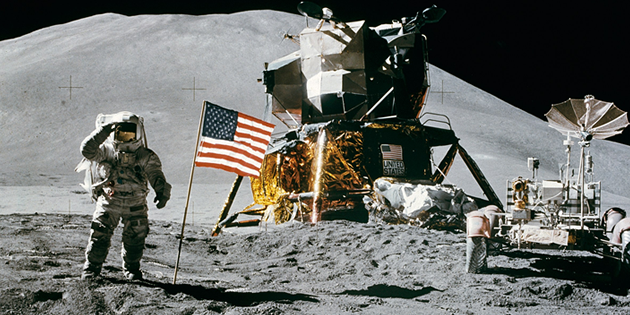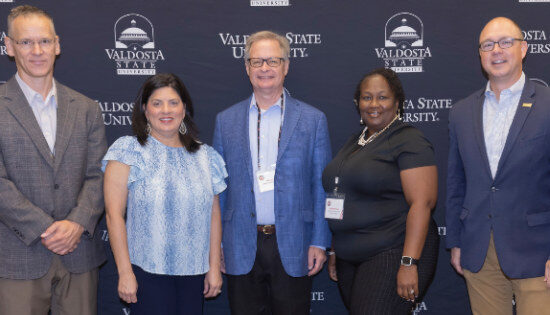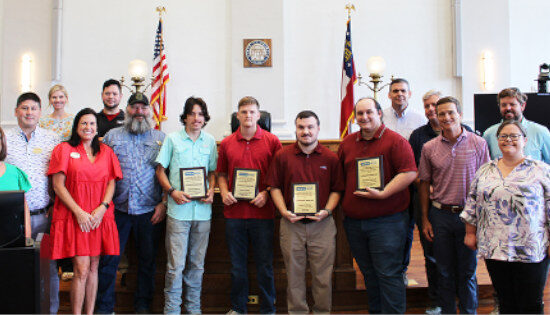The Desperate Need for a Comprehensive U.S. Space Policy
Nick Rudnik, Valdosta Today Opinion Contributor:
In 1964 Frank Sinatra put the song “Fly Me to the Moon” on top of the charts. The tune, hitting at the apex of American’s love affair with space, was quite fitting. The space race was in full swing between the U.S. and the Soviet Union. Both the Gemini and Apollo programs were dazzling us seemingly every day. The Saturn V was in development, the largest rocket ever built by human hands; a testament to twentieth century science and ingenuity.
As Americans listened to Ol’ Blue Eyes on their vinyl consoles bellow out the lines, “Fly me to the moon / Let me play among the stars / Let me see what spring is like / On Jupiter and Mars,” they looked up at the stars and believed that one day, perhaps even they’d be living on Mars, Jupiter, or some distant planet. The future was promising. Buildings began to resemble flying saucers. Jet airliners crisscrossed the Atlantic in mere hours. Chrome tailfins on cars were reminiscent of airplane wings. Acetate frames took on an avant-garde, space age chic. And women’s dresses appeared to be inspired from the fictional world of The Jetsons. In fact, the future wasn’t only promising, it was now.
But after we left earth for the moon, and did it again and again, Americans slowly lost interest in space. The great ticker-tape parades in New York’s “Canyon of Heroes” for our spacemen became less frequent. Space became ordinary. Then the shuttle program and the tragedies of Challenger, and later, Columbia, began to bore Americans with the final frontier.
And now, America has no shuttle program, nor rockets to take us into the heavens. Today, to get NASA astronauts to our space station, we have to pay the Russian government for a ride on a Soyuz rocket.
Neil deGrasse Tyson, astrophysicist and host of the hit television program Cosmos: A Spacetime Odyssey, recently observed that NASA’s funding, over the span of its existence, is eclipsed by the controversial 2008 TARP bailout. Consider: we spend more money bailing out big banks than we do on science, technology, and innovation. And this is something we shouldn’t lose sight of, space is the final frontier and we must be spacefaring pioneers.
But we have lost our leadership.
Washington has no comprehensive space policy going forward; one can’t be found in the halls of a Republican controlled Congress or a Democratic White House. In recent years the federal solution for NASA has been shortsighted—in a word, cut, cut, cut. If we want to recapture our status as global leaders, reap the benefits of space technology, and continue the great push in search of new homes, then space is not just a mere investment but an indispensable element of our social fabric.
What we desperately need is a bipartisan national consensus for space exploration; a program with timetables, oversight, and necessary funding. In a nation spending over $700 billion on defense, weapons of war, it would hardly be more than a “drop in the bucket” to reroute a billion or two, here and there, toward the peaceful pursuit of building spacecraft and sending men into space.
And there are collateral benefits: job creation. In fact, many of those jobs and much of that funding would go directly back into defense contractors like Lockheed Martin, Northrop Grumman, and Boeing—who also maintain NASA contracts.
Look what NASA was able to achieve in a little less than a decade. In 1960 America hadn’t sent a single human into space, yet in 1969 we put a team of two American astronauts on the lunar surface and brought them home safe again. That was in the 1960s, when electric typewriters, slide rules, and integrated circuits were “cutting edge.”
Americans need to get excited about the prospect of space travel once again. Think of the national pride inherent to American astronauts planting our flag in the Martian surface’s deep red clay. And think of the commercial benefits of, say, asteroid mining, and the new technologies and jobs developed from frequent space travel.
In John F. Kennedy’s epochal 1962 Rice University speech, the president reminds us that “there is no strife, no prejudice, no national conflict in outer space as yet. Its hazards are hostile to us all. Its conquest deserves the best of all mankind, and its opportunity for peaceful cooperation may never come again.” These are words worth remembering.
Perhaps in this new age of partisan warfare, in an era of congressional gridlock, space is the one thing legislators, both Democrats and Republicans, can coalesce around. Kennedy, as well as the great Ronald Reagan, spoke eloquently on the significance of space exploration and discovery. The idea can bring us together.
Above all, Americans need to become excited about the promise of the future again. And, what’s more exciting than living amongst the stars; living like The Jetsons? So, in the words of Star Trek’s Jean Luc Picard, let’s “make it so.”
 Nicholas A. Rudnik is currently pursuing a degree in political science with a concentration in American politics at Valdosta State University. Previously, he’s served as a congressional page in the U.S. House of Representatives during the 111th Congress and in the Office of U.S. Congressman Sanford Bishop. Further, Nick has served on staff at an institutional interest group, the Association of American Law Schools, in Washington and has worked in the private sector. He has presented his research, focused primarily on congressional parties and elections, at regional academic conferences and hopes to pursue a graduate degree in political science. Nick is currently completing two manuscripts relating to southern congressional elections and judicial decision-making in the area of campaign finance; he can be contacted via e-mail at narudnik@valdosta.edu. Follow Nick on Twitter: @NickRudnik.
Nicholas A. Rudnik is currently pursuing a degree in political science with a concentration in American politics at Valdosta State University. Previously, he’s served as a congressional page in the U.S. House of Representatives during the 111th Congress and in the Office of U.S. Congressman Sanford Bishop. Further, Nick has served on staff at an institutional interest group, the Association of American Law Schools, in Washington and has worked in the private sector. He has presented his research, focused primarily on congressional parties and elections, at regional academic conferences and hopes to pursue a graduate degree in political science. Nick is currently completing two manuscripts relating to southern congressional elections and judicial decision-making in the area of campaign finance; he can be contacted via e-mail at narudnik@valdosta.edu. Follow Nick on Twitter: @NickRudnik.












